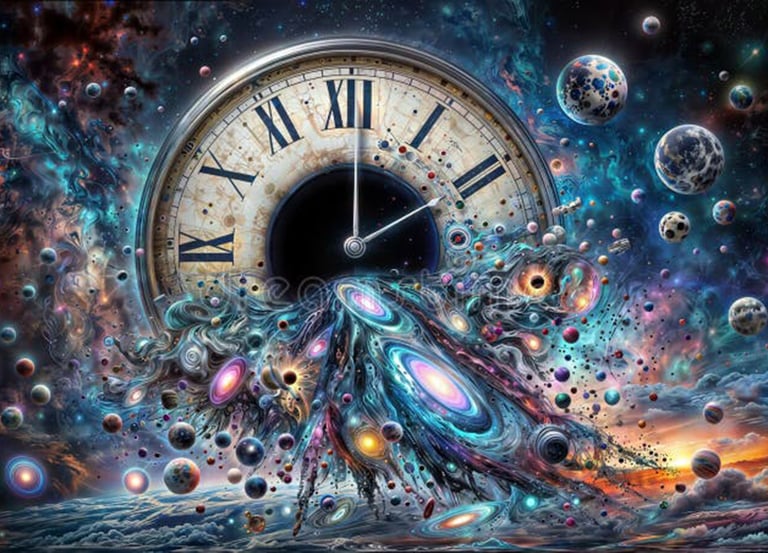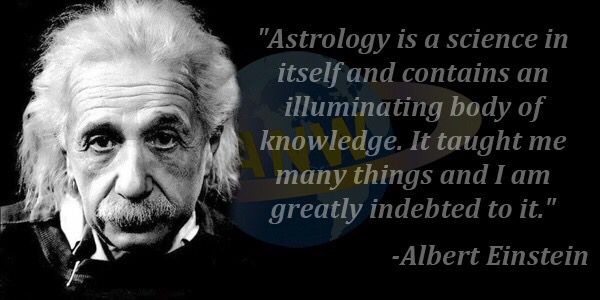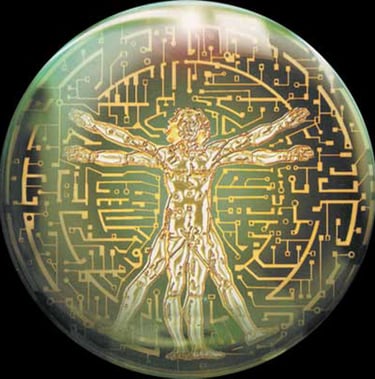WARNING: This website contains facts and opinions some may find offensive...
WHAT TIME IS IT FOR HUMANITY?


“To deny astrology, is to deny the glory of God!” —Tycho Brahe
“True astrology, is a holy testimony to Gods glorious works…” —Johannes Kepler
“Anyone can be a millionaire, but to become a billionaire you need an astrologer.” —J. P. Morgan
“A physician without a knowledge of Astrology has no right to call himself a physician.” —Hippocrates
Astrology is a Language. If you understand this language, The Sky Speaks to You.” —Dane Rudhyar
“The soul of the newly born baby is marked for life by the pattern of the stars at the moment it comes into the world, unconsciously remembers it, and remains sensitive to the return of configurations of a similar kind.” —Johannes Kepler
“To the medical man, astrology is invaluable in diagnosing diseases and prescribing a remedy, for it reveals the hidden cause of all ailments.” —Max Heindel


Astrology is 'believed' by a lot of people who know practically nothing about it; and it is 'disbelieved' by even more who know absolutely nothing about it. It is a mistake to confuse astrology with fortunetelling.
It is a physical science just as much as geology, depending on ascertained facts and grossly misrepresented by being connected with magic.
Astrology does suffer through being practiced by people who have not thoroughly studied it, who hang out their shingle when they have a half-baked knowledge of it, or who want to make a quick buck. It is true that many modern astrologers began life as skeptics.
Astrology is one of the earliest attempts made by man to find the order, hidden behind or within the confusing and apparent chaos that exists in the world. Every plant, animal, fish and insect responds to exogenous forces—for the most part, forces unseen and unknown.
Man, too, is influenced by many biological cycles. Mood, temperature, blood pressure—all rise and fall at regular intervals, and so does accident-proneness, intellectual force, emotional attitude and physical energy. These cycles are variable, starting at birth when the human begins to function independently of its parent.
Astrology is an ancient science that has always been very misunderstood and has often been looked upon in a very confusing manor. A good astrologer puts God first in the horoscope and uses astrology to connect people to God in the highest way.
Astrology has influenced men of all ages. It is a fact of historical record that it is the foremost intellectual movement of all time. It predates all other sciences, all political systems and all religions. It is older than the Great Wall of China, the Egyptian pyramids, the Dead Sea Scrolls, the temples of Greece, the tablets of ancient Babylon or the Ark of the Covenant.
The first surviving records date astrology from around eight thousand years ago in the land between the Tigris and Euphrates rivers, which is now Iraq. We know this from cuneiform writing that was invented at the time, along with the lunar calendar, the first monetary system, the arch, and the brick. There was no stone or wood.
Along with these inventions, the ingenious Sumerians devised the division of the circle into 360 degrees, and the sixty-minute hour. Astrology may go back even further. We know the Chinese, Mayan, and Indian civilizations independently used it for thousands of years.
Astrology crosses every intellectual level of every society of every age, and it attracts the greatest minds of all cultures, regardless of the prevailing religion or the incumbent political system. It is the cornerstone upon which education, religion, law, and science—in short, civilization—are built.
The Greeks were the first to link astrology with the psychological behavior of humans. In the eighth century AD, skilled Arabic mathematicians and astronomers invented the abacus and used it to calculate astronomical data for astrology.
Astrology influenced the Arabs, the Greeks, the Hindus, the Romans, the Chinese, and the Egyptians. It influenced the believers in Mohammed, the followers of Christ, and all the ancient Americans (the Aztecs, Toltecs, Incas and Mayans), the believers in the Platonic Eros, and those who subscribed to the mores and manners of Confucius.
Astrology fascinated Stoics in togas and Mystics in robes—the Popes of the Middle Ages and contemplative Buddhists—the prophets and holy men who wrote the Old and New Testaments, as well as Hippocrates, the Father of Medicine. It influenced Catholic Saints and Jewish Seers—the Caesars of the Second Century and the Arabs of the Sixth—the founders of Rome and the intellectuals of Greece—totalitarian dictators and American presidents—Wall Street brokers and space age scientists.
John Flamsteed, the first astronomer-royal, was a prolific astrologer. He built the internationally-renowned Greenwich Observatory in 1675.
It was the life work of Kepler; he labored over his laws in order to perfect his astrological predictions.
Newton’s primary interest was astrology. It was the problems posed by astrological “influence” which caused him to investigate light and gravity.
By the time he was 39, Nicholas Copernicus was learned in medicine, theology, mathematics, astronomy, and Greek. He was personal physician to his uncle, the Bishop-Prince of Ermeland diocesse. He was intrigued by the great minds of the Greek and Egyptian era. He was fascinated by their astronomical knowledge and use of astrology, but he did not blindly accept the theories of men like Meton, Pythagoras, Aristotle, and Ptolemy—all of whom were astrologers.
Pythagoras, the Greek philosopher-astrologer, born in 572 B.C., lived a century before Meton and was generally credited for discovering that the Earth is a sphere. By the time of Aristotle (384 – 322 B.C.) this concept was not only well established among the scholars of that period but also was known long before this to the most ancient peoples on the planet.
These men broke with all traditional natural philosophy and established their own on the basis of scientific truths they discovered and proved. They were not superstitious in any ordinary sense.
Today virtually every child grows up learning that the earth orbits the sun. But four centuries ago, the idea of a heliocentric solar system was so controversial that the Catholic Church classified it as a heresy, and warned the Italian astronomer Galileo Galilei to abandon it. Many people believe that Galileo was hounded by the church for almost two decades, that he openly maintained a belief in heliocentrism, and that he was only spared torture and death because his powerful friends intervened on his behalf. But an examination of the fine details of Galileo’s conflict with church leaders doesn’t bear that out, according to English department distinguished research professor Henry Kelly.
Today there is a rift between science and astrology. That rift has only existed for the last several centuries. That rift is ironic, because in a very real historical sense, astrology is very much the parent of the physical sciences.
Not very long ago, it was an established world view that our civilization traced it roots back to Greek and Roman times and later to Mesopotamia. What established this view, was that for a large part of Western history and during the major part of the middle ages, only writings from Latin and later Greek were allowed to be read or copied. Other sources were considered evil or even anathema.
When new access to Latin and Greek science and philosophies of antiquity began to be openly permitted, and then physically made possible with Johannes Guttenberg's development of the printing press in the early 1400's, it inevitably greatly contributed to the spawning of the renaissance.
Contact Us!
TuberoseHealing@protonmail.com
(727) 233-2978
Subscribe to our website.

